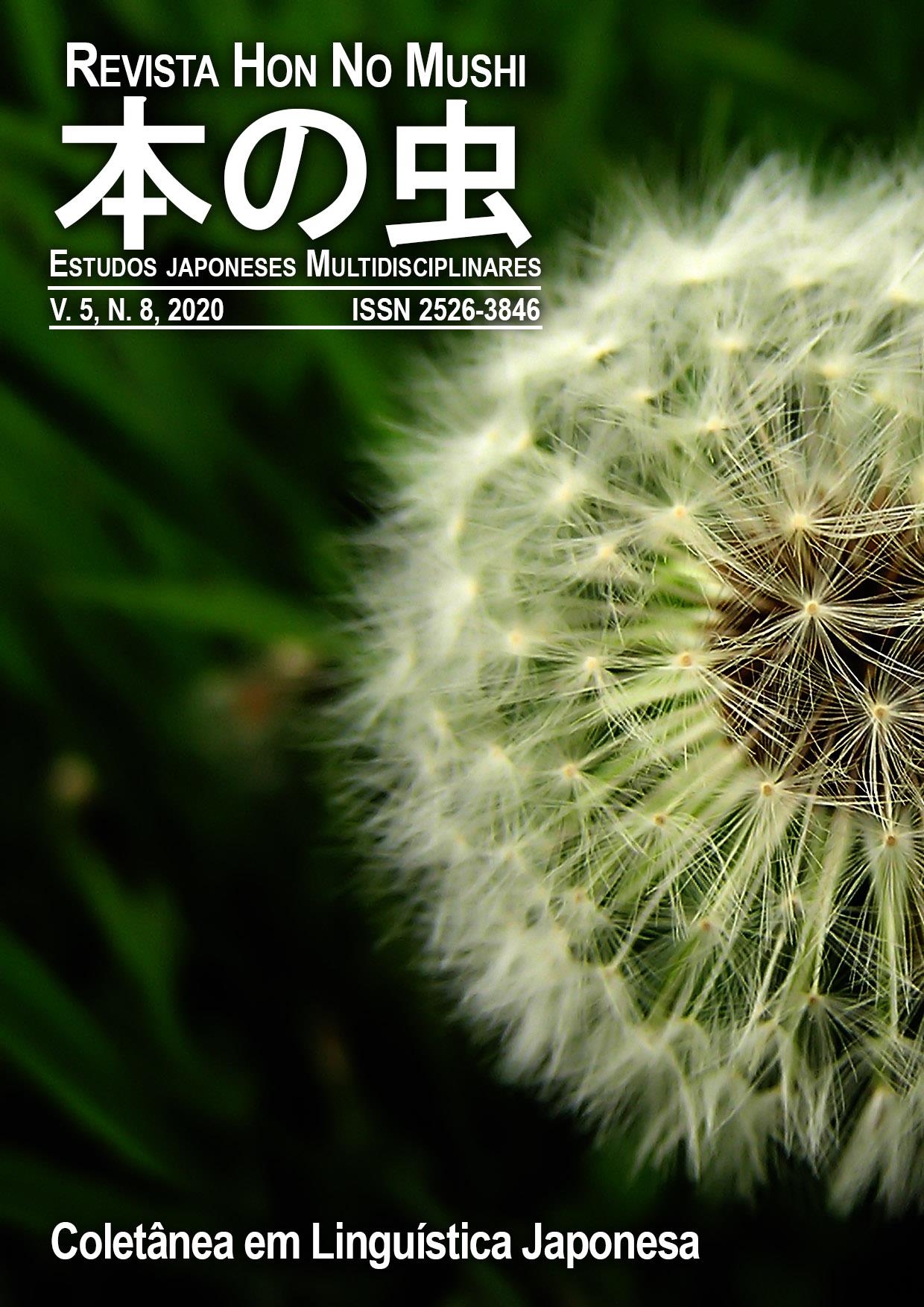A STUDY ABOUT HOW BRAZILIAN-PORTUGUESE SPEAKERS LEARNING JAPANESE USES THE STRUCTURE "TEIRU N GA ARU"
Keywords:
Brazilian-Portuguese, Resultative teiru, Articles, Mother tongue influenceAbstract
The Japanese resultative structure teiru corresponds basically to 'estar + past participle' in Brazilian Portuguese (BP). For this reason, we can state that for Brazilian learners (BPS) the resultative teiru is not difficult to master. However, in some situations, while Japanese native speakers use the resultative teiru, BPS uses "teiru noun ga aru"; e.g. "tsuiteiru denki ga aru". I believe this occurs due to BP influence by the use of indefinite articles. To confirm this hypothesis, in this study I have analyzed the possible causes and presented its features through the results of a questionnaire survey and grammatical judgment test applied to BPS. As a result, in situations where the indefinite article is attached, we can observe the use of "teiru noun ga aru", which may be due to the influence of mother tongue.
Downloads
References
庵功雄(2010)「第1回 アスペクトをめぐって」『中国語話者のための日本語教育研究』創刊号,中国語話者のための日本語教育研究会編,41-48.
稲垣俊史(2013)「テイル形の二面性と中国語話者によるテイルの習得への示唆」『中国語話者のための日本語教育研究』第4号,中国語話者のための日本語教育研究会編,29-41.
彌永史郎(2011)『新版ポルトガル語四週間』大学書林.
儀保ルシーラ悦子(2014)「ブラジル・ポルトガル語のアスペクト・テンス体系-日本語のアスペクト・テンス体系との比較研究」『ロマンス語研究47号』, pp.1-10,日本ロマンス語学会.
黒野敦子(1995)「初級日本語学習者における「-テイル」の習得について」『日本語教育』87,153-164.
陳昭心(2009)「「ある/いる」の「類義表現」としての「結果の状態のテイル」-日本語母語話者と中国語を母語とする学習者の使用傾向を見て-」『世界の日本語教育』,国際交流基金.
寺村秀夫(1982)『日本語のシンタクスと意味Ⅰ』くろしお出版.
トッフォリ・ジュリア(2019)「ブラジル・ポルトガル語を母語とする日本語学習者の結果残存のテイルの使用傾向―定冠詞と不定冠詞による影響」『一橋大学国際教育交流センター紀要』創刊号,一橋大学国際教育交流センター,29-40.
Hinds, John (1986) Situation vs. Person Focus.くろしお出版
Downloads
Published
Issue
Section
License
The copyright belongs to the Hon Journal in Mishi - Multidisciplinary Japanese Studies and to the authors of each article. All work or part of it, when quoted or used, must be referenced.




